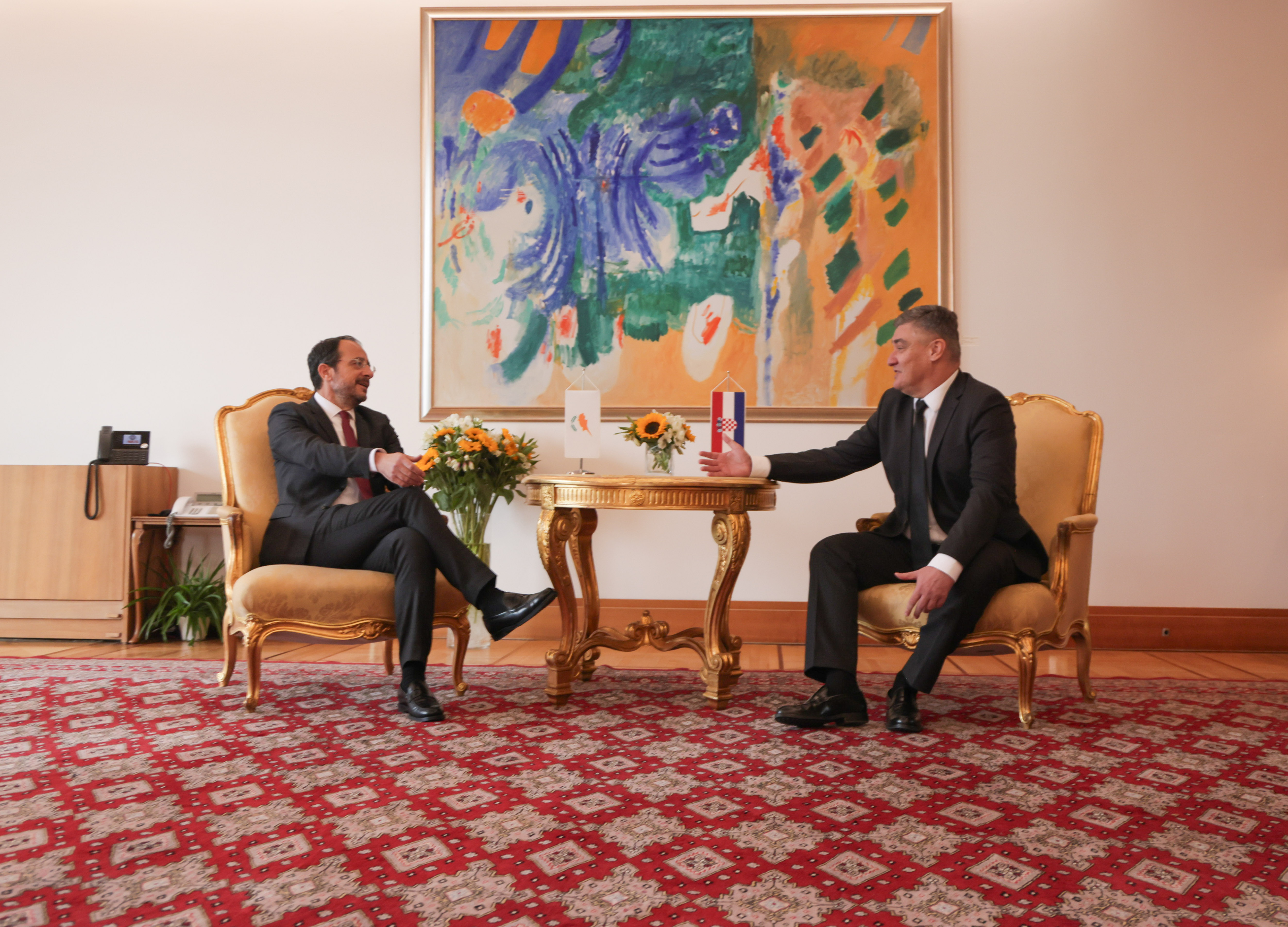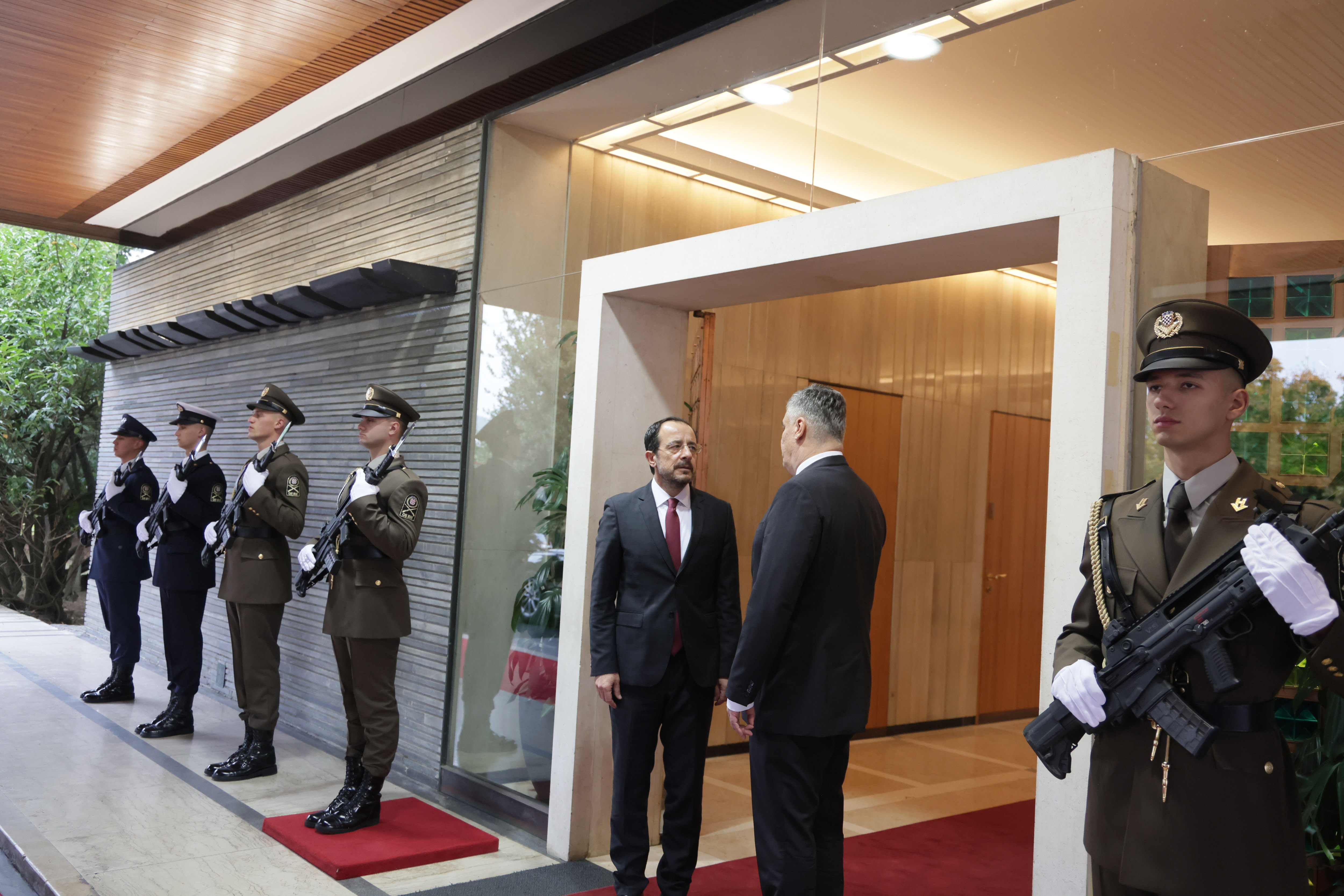President Nikos Christodoulides on Tuesday held talks in Zagreb with Croatian leaders ahead of Cyprus assuming the Presidency of the Council of the European Union.
According to a written statement by the director of the president’s press office, Victor Papadopoulos, President Christodoulides met with Croatian President Zoran Milanovic and Prime Minister Andrej Plenkovic. The discussions focused on strengthening bilateral relations and outlining the priorities of the upcoming Cyprus EU Presidency.
Following his meeting with Milanovic, Christodoulides later signed the guest book at the Croatian prime minister’s office and held a one-on-one meeting with Prime Minister Plenkovic. These meetings were followed by extended talks between the delegations of the two countries and statements to the press.
During the visit, President Christodoulides and Prime Minister Plenkovic laid a wreath at the Homeland monument. The ceremony was followed by a luncheon hosted in honour of the Cypriot president.
The main topics discussed during the meetings were bilateral relations and the priorities of the Cyprus EU Presidency, which begins on January 1, 2026.
President Christodoulides was accompanied on the visit by the director of the president’s press office, Victor Papadopoulos, and the deputy director of the diplomatic office of the president, Nektarios Soteriou. After the meetings in Croatia, he will travel to Brussels to take part in the European Council.

The visit forms part of a series of consultations between Cyprus and other EU member states in preparation for the country’s term at the helm of the Council of the EU. The presidency rotates among EU members every six months and involves coordinating the Council’s work and representing it in relations with other EU institutions.
Following his meetings in Zagreb, President Christodoulides is scheduled to travel to Brussels later on Tuesday to take part in the European Council. The summit brings together EU heads of state and government to discuss key policy issues, including the economy, migration, and international developments.






Click here to change your cookie preferences